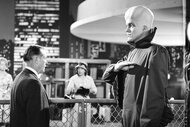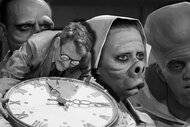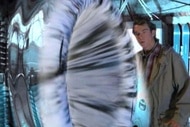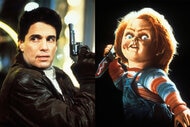Create a free profile to get unlimited access to exclusive videos, sweepstakes, and more!
What we want from the BBC’s upcoming adaptation of Dracula
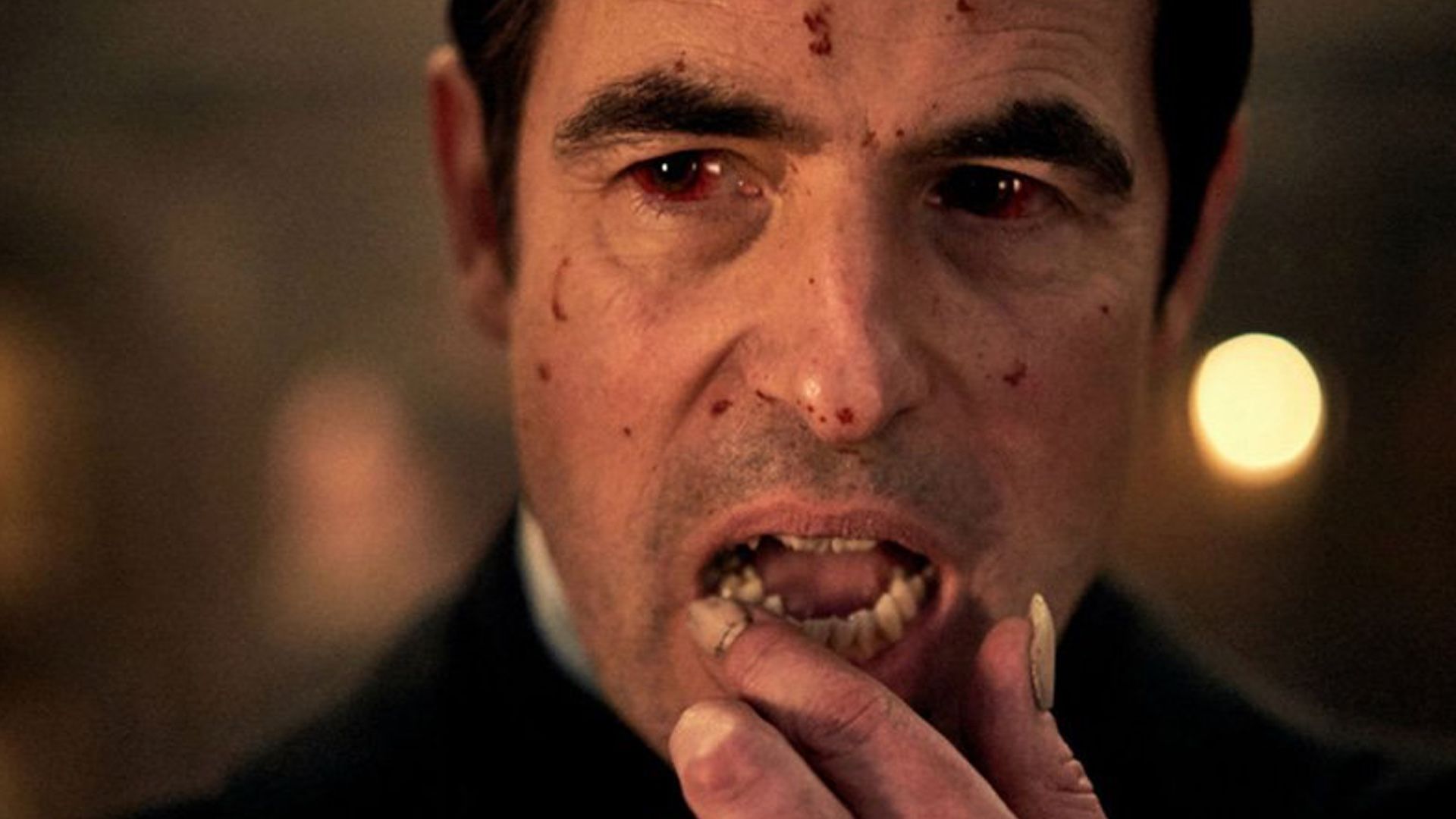
If you watch enough of the BBC, you’ll see the same stories pop up time and time again. If there’s one thing us Brits do well in the world of television, it’s adapt classic literature into a endless stream of prestige programming. It’s true. We can’t resist petticoats and buttoned-up emotions. Is there a novel with hundreds of pages, a similar number of characters, and plenty of period drama shenanigans sitting on your shelf? Chances are the BBC has already made it into a show, perhaps several times over. Certain iconic books get the adaptation treatment in regular cycles, especially those by Jane Austen and Charles Dickens.
However, there is one notably popular and instantly recognizable piece of Victorian literature that has only been adapted once before by the Beeb. It remains peculiar that the BBC have never truly embraced Bram Stoker’s Dracula until now.
In June 2017, it was announced that the BBC, in collaboration with Netflix, would be developing an adaptation of perhaps the most influential vampire novel ever written. Mark Gatiss and Steven Moffat, the duo best known for Sherlock, would helm the series. Not much is known about what the show will look like or how closely it will adhere to the novel. The cast, however, is highly promising, with special attention falling to Claes Bang, the Danish actor who will play the title role. Recently released images depict him in full vampire mode with some hardcore danger-sexy Christopher Lee energy, and we were here for it.
A new TV version of Dracula presents some interesting creative conundrums. Dracula adaptations are extremely common, but more as movies. The last big television one we got was NBC’s solitary season of Dracula starring Jonathan Rhys Meyers, a fascinating but incredibly messy story that threw out the book in favor of making our vampiric count the undead equivalent of Tesla in ways that never truly paid off. Then again, that’s a big feature for most adaptations of Dracula over the many decades they’ve been made: they seldom faithfully stick to the source material. More often than not, Stoker’s book is regarded as a helpful guideline of ideas and themes for a creator to plunder.It’s one of the things that makes Dracula so enduring as a cultural icon. You can use that exceptionally flexible metaphor of vampirism — and the narrative of a mysterious outsider bringing sexual panic to a puritanical society — to tell basically any story you want. Hell, the BBC has already done this in their first Dracula adaptation, a 2006 TV movie where the common analogy of vampirism as a form of disease was used to tell a story of secret societies and syphilis (it’s not very good, sadly).
So, what do we want from Gatiss and Moffat’s adaptation?
The chances are that Gatiss and Moffat’s Dracula will follow the well-trodden path of its predecessors and use the familiar characters and themes to tell a new story. There’s precedence for this from Moffat, who broke out in a major way to worldwide audiences with Jekyll, his modern-day re-imagining of Robert Louis Stevenson’s classic horror tale. The 2007 series was a sequel of sorts to the original novella, imagining one of Dr. Jekyll's descendants struggling with his own transformation.
What made that show so appealing, when it was firing on all cylinders, was its understanding of what made the original story an enduring piece of fiction. Moffat extrapolated the themes he enjoyed the most — the search for identity, the fear of losing control — and combined them with ones not in the source material but that still made sense, such as the search for familial identity. Add to that a savvy understanding of tone — the show does not shy away from Hammer Horror-esque camp, even as it gets violent — and there was much to enjoy.
A version of Dracula in this mold would be fascinating. The released images suggest the show will be period appropriate to Stoker’s book, but the basic mold of Jekyll could serve the writers well. They love puzzle box stories with charismatic leads whose thrall comes from their otherworldly abilities, and that’s Dracula in a nutshell. The possibilities are endless. But of course, there is also reason to be cautious.
Anyone who’s ever enjoyed a Steven Moffat show will be painfully familiar with the cycle of emotions that accompany such experiences. We all know his favored tropes, his preferred character types, and the way he ends — or doesn’t end — a story. He is not untalented and certainly has a flair for those high-concept ideas that surprise at every turn. That, however, tends to work best in one-off episodes, such as the very first Doctor Who episode featuring the weeping angels. Moffat often gets too tangled up in building labyrinthine plots and conspiracies, only to stumble with the payoff. Remember the finale of the second season of Sherlock and how we were all so sure he’d have the perfect explanation for the seemingly impossible Reichenbach Fall? Well, that didn’t work out as we hoped it did. Indeed, rather than offer an answer to the exceedingly clever riddle he spent all that time crafting, Moffat just dismissed the plotline entirely and had characters in the show berate the imagined audience for even caring (including a particularly nasty depiction of the fan-base that proved mean and kind of sexist). It’s a problem that plagued his Doctor Who run too, and even his inventive but overwhelmed Jekyll. He has great ideas but seldom follows them through to the very end, then treats the audiences as stupid for “not getting it.”
Obviously, fans are keen for Moffat and Gatiss to avoid this trap with Dracula. At its heart, Dracula is a very simple horror story that just happens to be weighed down by cultural awareness and academic expectations. It’s not necessarily a narrative that should be made overcomplicated by the adaptation process. The worst films and series made from the book tend to be ones too enamored with the idea of pretending the original narrative is disposable. It’s not a story that needs elaborate conspiracies piled on top of one another in ways that spoil the inherent mystique of the arc.
And then there are fears for the depictions of these characters. Mina Murray and Lucy Westerna are two of the most fascinating women in Victorian literature, friends ahead of their time and torn apart by a stifling societal expectation that they be obedient wives. Alas, most Dracula adaptations tend to screw the pooch on the female characters, turning Lucy into the stock version of the “slut” who needs to be punished and making Mina a love interest for Dracula. Moffat loves himself a peacock-strutting male lead whose aggressive intelligence seemingly gives him carte blanche to treat all around him as having less value than pond life. Women, in particular, suffer from this dynamic, as evidenced by almost every single woman in Sherlock. Dracula is already a story about trauma and the toxic power dynamic that cannot help but prove magnetic to many women, and it’s not hard to see why some fans would be afraid that Moffat and Gatiss aren’t the right pair to pull that off.
Only time will tell what the BBC's Dracula series holds in store for us, but even with all our skepticism, we can’t claim that we won’t watch every episode in feverish glee.
The views and opinions expressed in this article are the author's, and do not necessarily reflect those of SYFY WIRE, SYFY, or NBC Universal.





